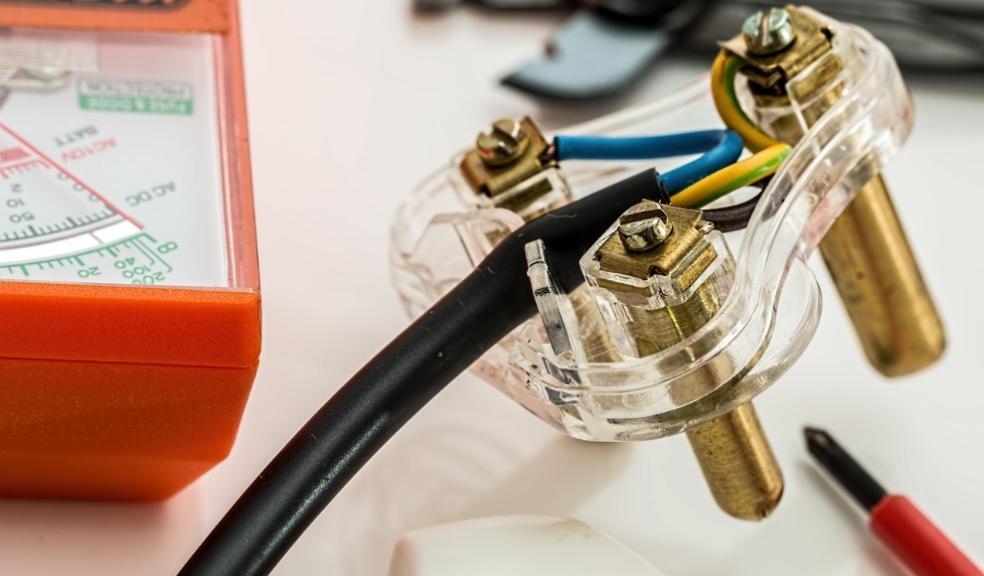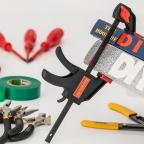
DIY Danger: Expert advises on electrical jobs in the home you must never do yourself
While it's tempting to complete electrical jobs at home without the help of a professional to save money, there are often hidden dangers that could put you and your home at risk while carrying out these tasks - it has been reported that 50 per cent of household electric shocks are caused by DIY errors.
To educate homeowners, an expert from MyBuilder.com, the reliable way to hire tradespeople, is highlighting some of the jobs that homeowners must never attempt without an electrician.
Tens of thousands of Brits may find that their home has a missing or broken smoke alarm, a dodgy light switch, or need an electric vehicle (EV) charger installed. But while some jobs seem simple enough, you may be breaking the law by getting them done without the help of a registered professional. Other jobs may not strictly be illegal, but are still unsafe and could result in damage to your home, serious injury to yourself, or even death.
Jonathan Steed, an expert electrician from MyBuilder.com, said that homeowners should always consider hiring an electrician to carry out electricity-related jobs in their home.
"Hiring a professional will greatly reduce the chances of serious damage to you or your home, keeping you safe and potentially saving you paying thousands pounds in damages should the job go wrong.
"While some electrical jobs may appear easy, there are hidden dangers that could cause harm to you and your household. You may also be violating your home insurance or government regulations if you choose to attempt a task yourself without an electrician."
Below is an expert guide from MyBuilder.com to the jobs you must never attempt yourself.
Fixing a shower
Although it may be tempting to fix your electric shower, you would be breaking the law by doing so, and risk being handed a hefty fine. Part P of the UK building regulations prohibits certain electrical work in bathrooms without a professional able to provide an appropriate certificate.
While Part P is not applicable in Scotland, it follows the Building (Scotland) Regulations 2004 where a Building Warrant is required for most electrical work unless done by an approved certifier of construction (qualified electrician). Working with both water and electricity is also dangerous and poses risks such as water leaks, electric shocks, and even fires. Booking an electrician will stop you from accidentally breaking the law or putting yourself at risk, while allowing your shower to be fixed safely.
Installing a smoke alarm
It is strongly recommended - and a legal requirement in Scotland - that your home contains a smoke alarm on every storey with a living space, and that they are mains-wired to all other alarms to ensure they go off at the same time.
They should be fitted onto your ceiling, away from lights. Incorrect installation can result in alarms not being able to detect smoke, which could put your life at risk. You will likely require the assistance of an electrician, who will know where to fit your detector and how to link them all in order to warn you of a house fire as effectively as possible.
Fixing a dodgy light system
Though it is not illegal to fix a broken light switch, or repair your damaged light fitting yourself, electric shocks, burns and even fires are some hazards that can occur if this job is not done safely.
Failure to complete important tasks, such as switching off your consumer unit if your job involves contact with wires, can put your life at risk, particularly if your home has an older consumer unit. To avoid these dangers, it is safer to call on an electrician.
Installing an EV charger
While installing an EV charger by yourself is legal, you must hire a qualified electrician to complete this job if your charger requires a new electrical circuit, where only they can handle the wiring and circuit work.
An electrician will also know the right volt for your vehicle, whether your electric panel can support an EV charger, or if your home has the legally-required space for an EV charger - there are government restrictions for those who don't have a driveway, and there may also be additional restrictions for those who live in a flat or shared building.
Fitting kitchen electrical appliances
Though fitting a new fridge, dishwasher or oven may seem simple enough, these items can require a lot of power and will need to be hardwired to your home's electrical system as a result. Failure to do these jobs properly could cause overheating to your appliances, electric shocks, or fires as a result of faulty wiring. Hiring an electrician, who is qualified to correctly secure your wiring to your circuit, will eliminate the risk of serious danger to you and your home.









